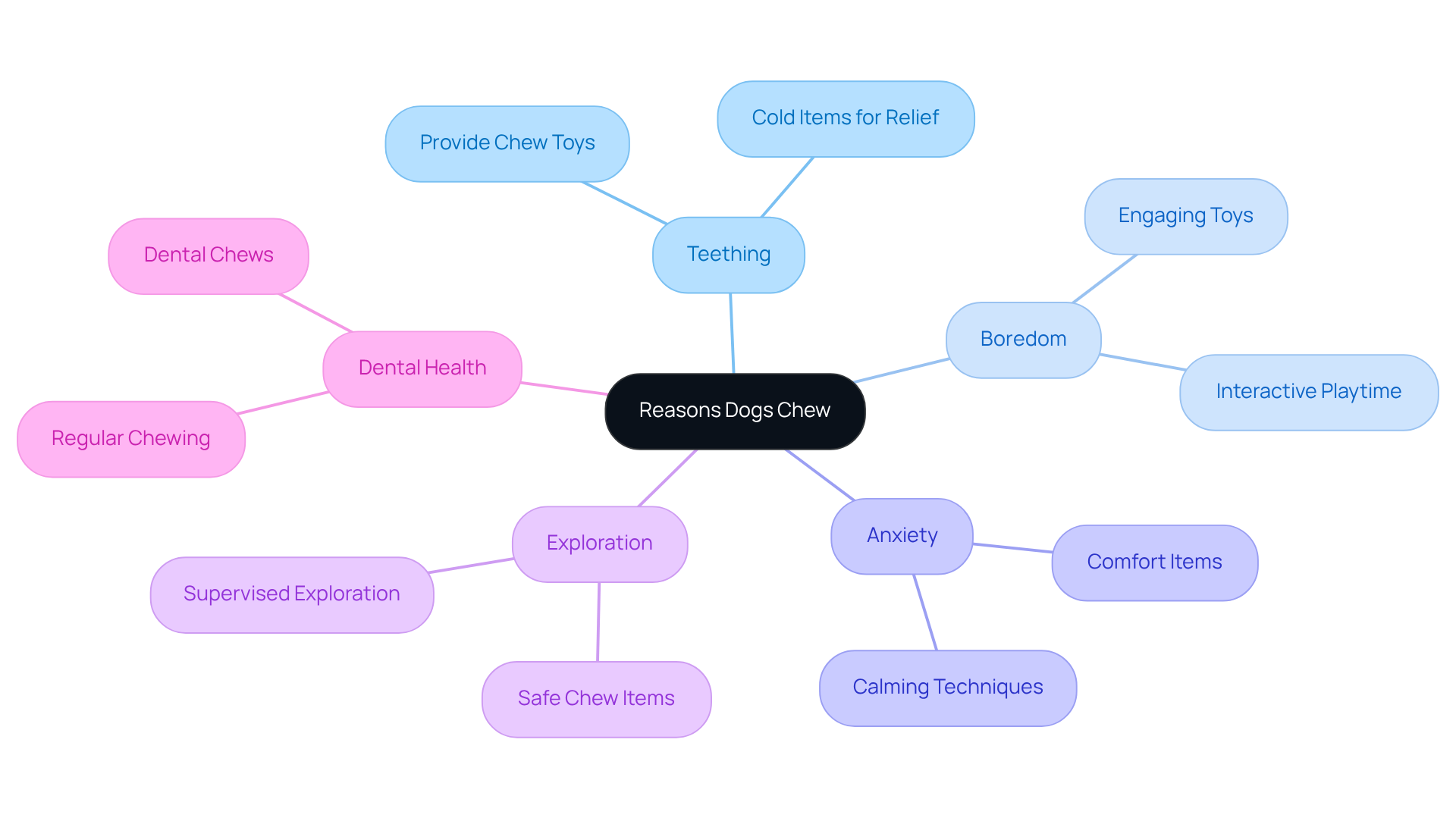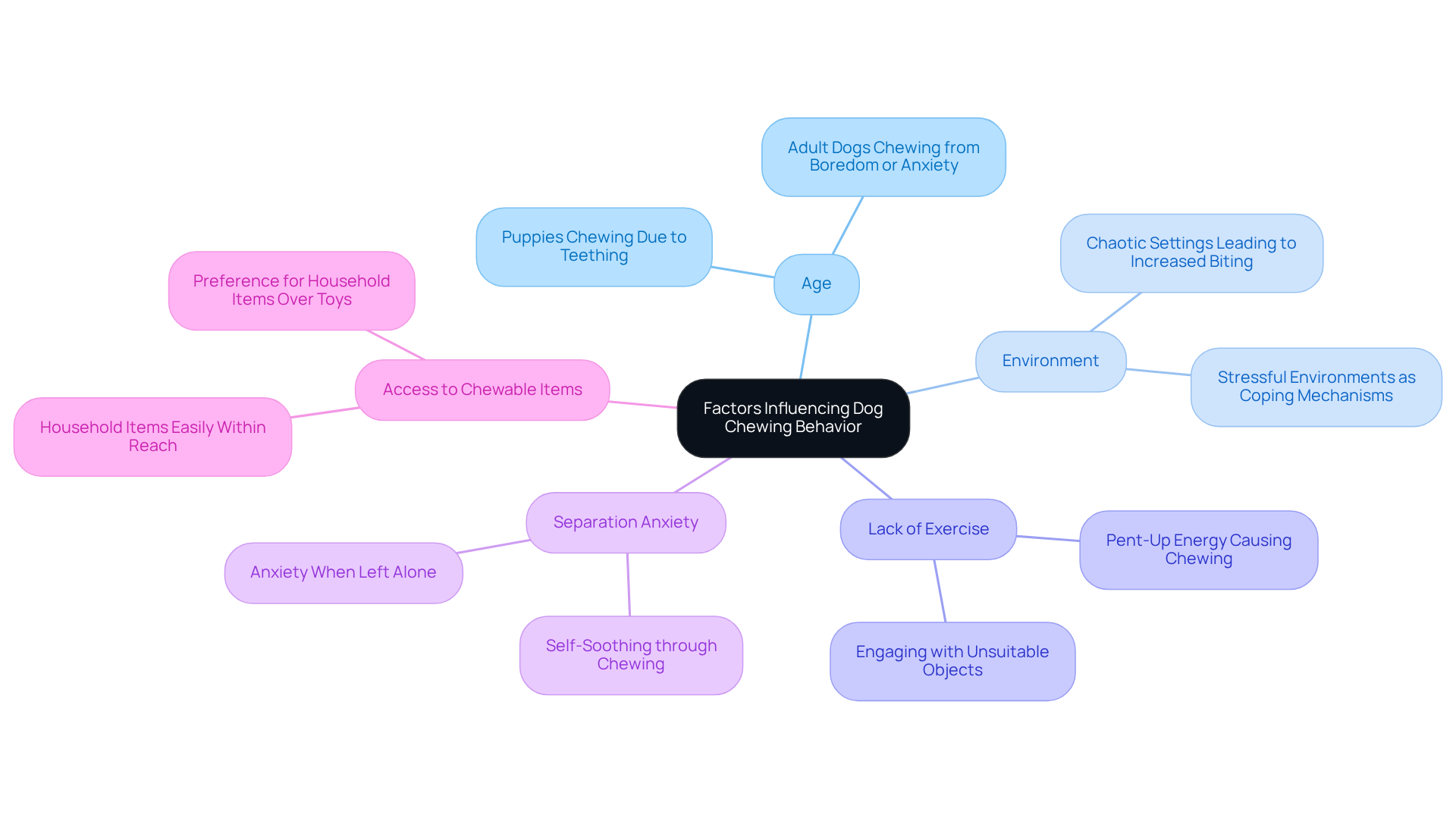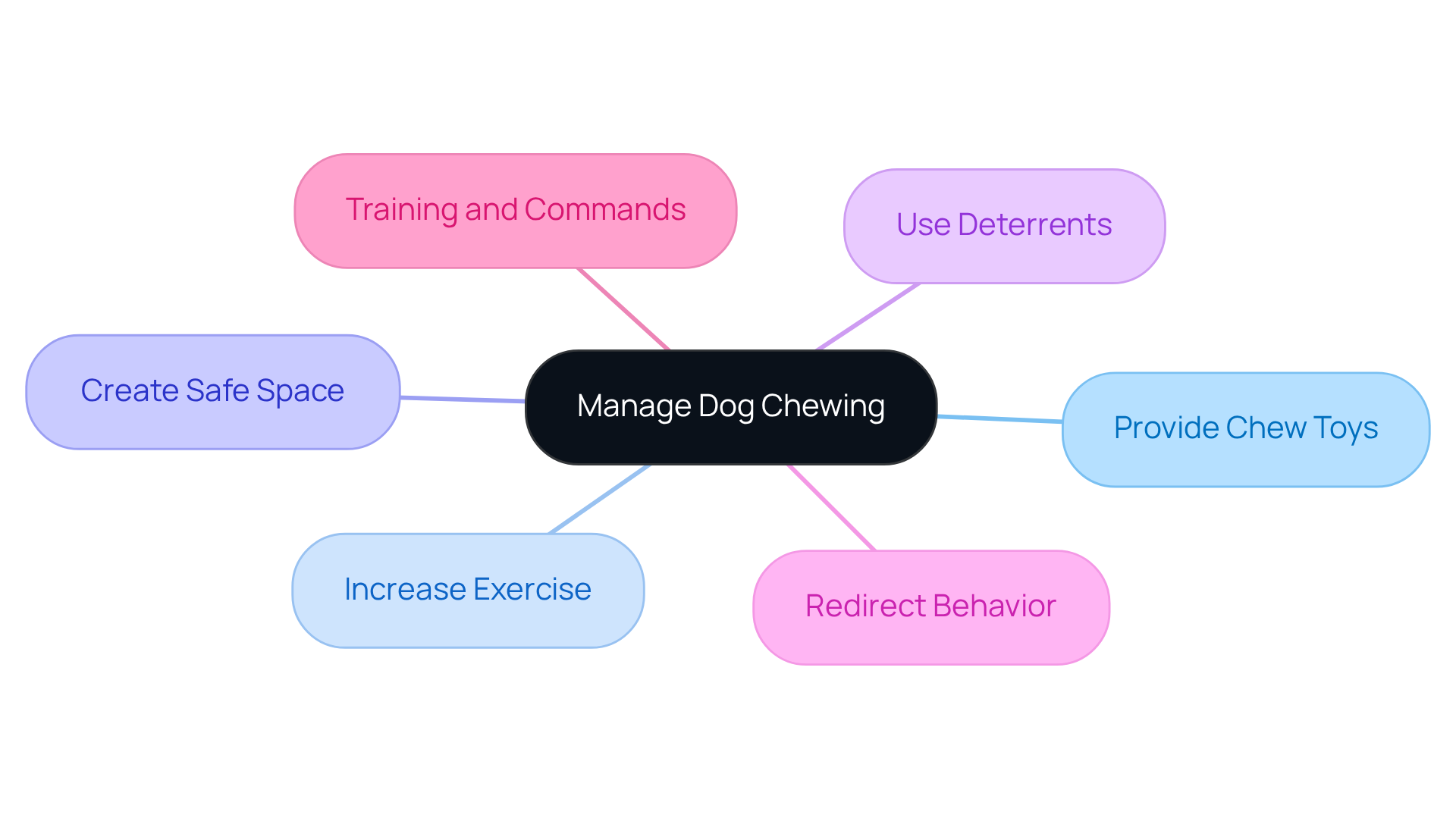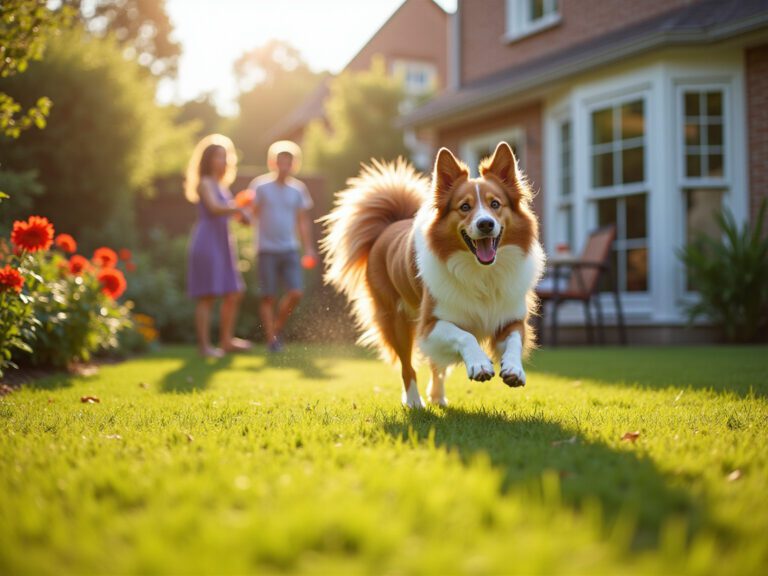Understand Why Your Dog Chews: Key Factors and Solutions
Overview
This article delves into the reasons behind why our furry family members chew, highlighting key factors such as:
- Teething
- Boredom
- Anxiety
- Exploration
- Dental health
Understanding these influences can empower pet owners to create a nurturing environment for their beloved companions. By recognizing these reasons, you can implement effective strategies, like providing appropriate chew toys and increasing exercise, to manage your dog’s chewing habits. Together, we can ensure that your pets thrive in a loving and supportive atmosphere.
Introduction
Understanding your furry family member’s chewing behavior can unlock the secrets to a happier, healthier pet. Chewing is not merely a nuisance; it serves various essential purposes, from providing teething relief in puppies to acting as a coping mechanism for anxiety in adult dogs. However, the challenge lies in differentiating between harmless chewing and destructive habits.
What drives this behavior? How can you, as a caring pet owner, effectively manage it to create a nurturing environment? This article delves into the key factors influencing why dogs chew and offers practical strategies to guide them towards healthier chewing habits.
Explore the Reasons Dogs Chew
Understanding why dogs chew for several reasons can help you nurture your furry family members better. Here are some common reasons why your dog may be chewing:
- Teething: Just like human babies, puppies often chew to relieve discomfort from incoming teeth. This is a natural part of their development.
- Boredom: If your dog is left alone for extended periods, they may resort to dog chews to entertain themselves. Providing engaging toys can help alleviate this.
- Anxiety: Dog chews can serve as a comforting mechanism for dogs experiencing stress or separation anxiety. Recognizing this behavior is the first step in providing support.
- Exploration: Exploration occurs when dog chews, allowing them to explore their environment and learn about their surroundings, satisfying their natural curiosity.
- Dental Health: Regular dog chews contribute to maintaining strong jaws and clean teeth, which are essential for overall health.
By recognizing these reasons, you can take appropriate action to ensure your dog feels understood and cared for. At Adventure Den, we are here to help you create a nurturing environment for your beloved pet.

Identify Key Factors Influencing Chewing Behavior
Understanding your furry family members’ dog chews behavior is essential for creating a nurturing environment. Several key factors can significantly influence this behavior:
- Age: Puppies often chew more due to teething, while adult dogs may resort to chewing out of boredom or anxiety.
- Environment: A chaotic or stressful setting can lead to increased biting as a coping mechanism for your pet.
- Lack of Exercise: When dogs don’t get enough physical activity, they may have pent-up energy that causes them to engage in dog chews on unsuitable objects.
- Separation Anxiety: Dogs that feel anxious when left alone might resort to dog chews as a way to self-soothe.
- Access to Chewable Items: If your dog chews on household items easily within reach, they may prefer those over their designated toys.
By comprehending these factors, you can take proactive steps to create a more favorable environment for your beloved pets. Remember, at Adventure Den, we’re here to support you in nurturing your furry companions and ensuring their happiness.

Implement Strategies to Manage Chewing
Managing and redirecting your dog’s chewing behavior can be a heartfelt journey as you discover how your dog chews. Here are some nurturing strategies to consider:
- Provide Appropriate Chew Toys: Ensure your furry family members have access to a variety of safe and engaging chew toys. This satisfies their natural chewing instincts and keeps them happy when the dog chews on it.
- Increase Exercise: Regular physical activity is essential. It helps reduce boredom and anxiety, minimizing the urge to engage in destructive behavior.
- Create a Safe Space: Designate a specific area for your dog to play and gnaw, ensuring it’s free from valuable items. This creates a comforting environment for them.
- Use Deterrents: Consider applying bitter-tasting sprays on furniture or items you want to protect. This can gently discourage unwanted dog chews.
- Redirect Behavior: If you catch your dog chews on something they shouldn’t, calmly guide them to a toy meant for biting. This redirection fosters understanding.
- Training and Commands: Teaching commands like “leave it” helps your dog learn what is acceptable to chew, reinforcing positive behavior.
By implementing these strategies, you can create a nurturing environment that fosters healthier dog chews for your beloved pet.

Conclusion
Understanding the reasons behind a dog’s chewing behavior is essential for fostering a nurturing relationship between pets and their owners. By recognizing that chewing is a natural instinct shaped by age, environment, and emotional state, pet owners can better meet their furry companions’ needs and provide the necessary support.
This article highlights several key insights:
- The importance of offering suitable chew toys
- Ensuring regular exercise
- Creating a safe space for dogs to explore their chewing instincts
Furthermore, recognizing signs of anxiety and boredom can lead to effective strategies for managing destructive chewing behavior. By implementing these nurturing approaches, dog owners can cultivate a healthier and happier environment for their pets.
Ultimately, understanding and managing dog chewing behavior goes beyond preventing damage to household items; it’s about enhancing the overall well-being of pets. By taking proactive steps to address the underlying causes of chewing, pet owners can create a more fulfilling and positive experience for both themselves and their beloved companions. Embracing this knowledge not only enriches the lives of dogs but also strengthens the bond between humans and their furry family members.
Frequently Asked Questions
Why do dogs chew?
Dogs chew for several reasons, including teething, boredom, anxiety, exploration, and dental health.
How does teething affect a puppy’s chewing behavior?
Puppies chew to relieve discomfort from incoming teeth, which is a natural part of their development.
Can boredom lead to chewing in dogs?
Yes, if dogs are left alone for extended periods, they may chew to entertain themselves. Providing engaging toys can help alleviate this behavior.
How does anxiety influence a dog’s chewing?
Dogs experiencing stress or separation anxiety may chew as a comforting mechanism. Recognizing this behavior is essential for providing support.
What role does exploration play in a dog’s chewing habits?
Chewing allows dogs to explore their environment and learn about their surroundings, satisfying their natural curiosity.
How does chewing contribute to a dog’s dental health?
Regular chewing helps maintain strong jaws and clean teeth, which are important for a dog’s overall health.







